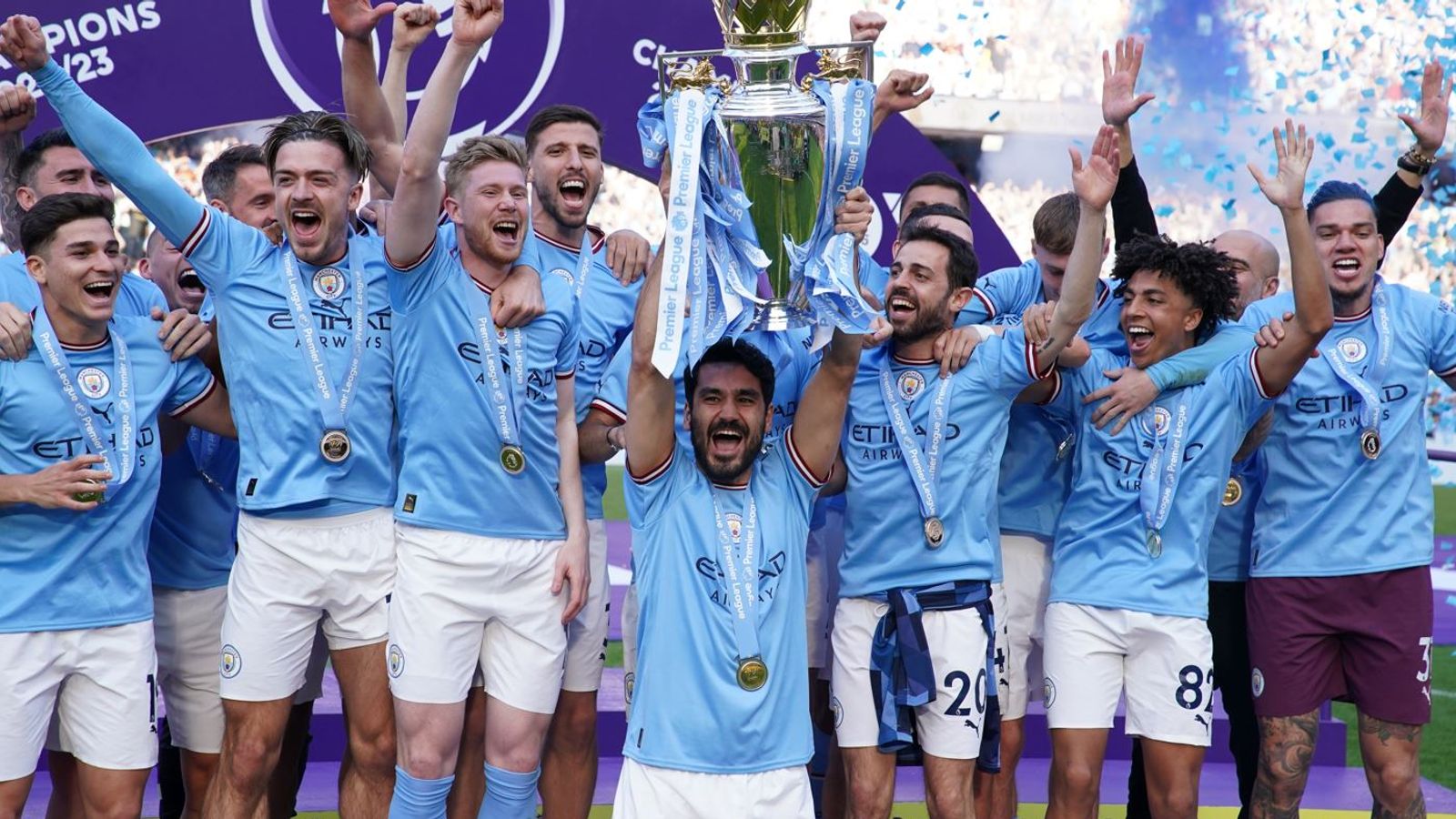Combined losses across Premier League clubs in the 2022-23 season grew by 16% despite a rise in revenue to £6bn for the first time, according to a closely-watched annual review of football finances.
The report by Deloitte’s Sports Business Group showed pre-tax losses for top flight clubs of £685m over the period – a season won by Manchester City.
Wages and costs associated with player transfers were blamed for the red figure.
Concerns for sustainability continue to dominate the English Football League (EFL) Championship too.
Money latest:
Major mortgage lender cuts rates
There was some progress, as spending on wages fell below revenue for the first time since 2016-17.
But the combined performance saw operating losses of £316m despite a 10% rise in revenue to £749m for clubs in the second tier.
Deloitte said Premier League parachute payments accounted for £200m of that sales sum.
The report was posted as football finances remain firmly in the spotlight amid a series of bitter disputes between Premier League clubs and league bosses over financial fair play rules.
EFL sides are also still fighting for a bigger slice of the cake from the top tier.
While the study focuses on the financial state of league clubs during 2022-23, Everton and Nottingham Forest were docked a combined 12 points last season.
The penalties related to breaches of Premier League profitability and sustainability rules (PSR), which measure non-allowable losses.
Manchester City are also sweating on a series of league charges related to the historic reporting of revenue – charges they strongly deny and intend to contest.
The club has moved to sue the Premier League in response.
The PSR will remain in place next season while new financial regulations are trialled in shadow form.
The squad cost rules (SCR) will limit spending on items such as wages, agents, and transfer amortisation fees to 85% of revenue, while top-to-bottom anchoring (TBA) caps the amount any club can spend on squad-related costs at five times the forecast lowest central payment to a club in that season.
Clubs in the top five tiers of the English game also remain set to be subject to licensing conditions imposed by an independent regulator.
That is because the Conservatives, Labour, and the Liberal Democrats have each committed to creating a statutory body to protect the English professional game’s financial sustainability in their election manifestos.
It follows the failure to agree terms on a so-called New Deal for the EFL, which could have seen just over £900m handed down to the lower professional divisions by the Premier League over a six-year period.
Deloitte’s report showed rising revenues for the top leagues across Europe and some progress in bringing down the wages-to-revenue ratio across the so-called big five – the Premier League, La Liga, Bundesliga, Serie A and Ligue 1 in France.
Read more business news from Sky News:
Telegraph suitors given deadline in £600m bidding war
Getir shareholders back break-up of food delivery group
Tim Bridge, lead partner in Deloitte’s Sports Business Group, said: “The 2022 FIFA World Cup, the lifting of final COVID-19 restrictions, and the fervour of fans engaging with football has led to strong growth in the European football market in 2022/23.
“As plans and conversations continue across leagues in terms of further regulation and investment, European football is sitting at an inflection point.
“Football is growing into an ever more globally connected game, and this brings new challenges to maintaining competitive balance, strong governance and regulation.
“Leaders across the industry must provide a united front in following good governance principles to build a future for European football that fans, players, and partners across leagues can be excited for.”


